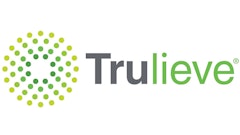
After much debate, Israel’s Cabinet approved a cannabis export plan Jan. 27. Only the Netherlands and Canada have joined this class of countries willing to ship cannabis across national borders.
This new attention on international cannabis trade will be a 2019 trend worth watching closely.
Aura Health CEO Daniel Cohen said the export policy is very beneficial to his Toronto-based company, which holds a 54-percent ownership stake in HolyCanna’s nursery and cannabis cultivation license in Israel. Target export markets include European Union countries, where medical cannabis demand is skyrocketing.
“With our Israeli production set to begin later this year, combined with our planned acquisition of the Pharmadrug distribution business in Germany, this moves Aura into a very strategic position,” Cohen said in a public statement. “Until our own production is available, we see significant revenue opportunities by exporting other cannabis products from Israel into the E.U. through our mapped distribution channels.”
The Pharmadrug acquisition is recent news. On Jan. 25, Aura’s executive team announced that the company had signed a binding letter of intent to acquire 80 percent of Pharmadrug Production, a German pharmaceutical distribution firm with a “Schedule I European Union narcotics license that allows the business to distribute medical cannabis to pharmacies in Germany and the rest of the Eurozone as markets become legalized,” according to Aura Health. Pharmadrug already has supply agreements in place with companies in the Netherlands and Canada.
Aura acquired its Pharmadrug equity for EU$5 million. (The remaining 20 percent of Pharmadrug will be retained by seller Anquor Pharmaceuticals, which will continue to operate out of the Berlin office.)
“Pharmadrug fits well strategically with our Israel business,” Cohen said. “With the imminent opening of the Israeli export law and Israeli GMP complying with European GMP, we will have a strategic avenue to export cannabis from Israel into the European Union.”
Germany (population: 83 million) has not yet issued its medical cannabis licenses. The country’s Cannabis Agency recently reported that it had received 79 business applications for just 13 cultivation licenses. As the country’s licensing oversight process has played out in legal fits and starts, demand for medical cannabis imports has risen. Licensed producers in Canada, such as Canopy Growth and Tilray, obliged and met the rising demand through 2018.
The German medical cannabis market was estimated at EU$19.1 million in 2018, according to Frankfurt-based pharmaceutical company Farmako, and will increase to some EU$200 million in 2019. By 2028, demand for medical cannabis in Germany could reach a market volume of EU$7.8 billion. (Germany legalized medical cannabis in March 2017.)
Across all of Europe, Farmako executives stated, the medical cannabis market could reach EU$55 billion.
For Aura and its HolyCanna assets in Israel, the export possibilities are far-reaching. Israel’s medical cannabis export law could take up to a year to formally get off the ground, according to Israeli media network Arutz Sheva 7. Israel’s Ministry of Finance predicts that the new law will reap $1 billion in tax revenue for the country. The timing of the Cabinet’s passage fits neatly into broader global conversations about the future of cannabis. How will international trade treaties and the World Health Organization address the movement of legal cannabis?
The Times of Israel, in fact, links the sudden legislative action to the forced resignation of U.S. Attorney General Jeff Sessions, who held a hard-line anti-cannabis stance while in office and who was booted from the White House in November 2018.























